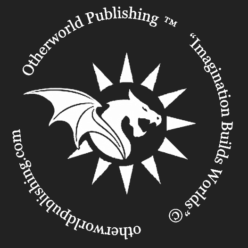A healthy Canadian-owned and -controlled publishing industry is essential for broad public access to Canadian writing.
As Canada seeks to maintain a competitive position with respect to international trade and economic growth, and as technological advances make it easier to access books and other media from around the world, why does a Canadian-owned and -controlled book industry matter? In short, Canadian ownership of cultural enterprises fosters Canadian culture and identity, while contributing to the economy on a national scale. It has been demonstrated that Canadian-owned firms are more likely to publish books by Canadian writers, and Canadian-owned firms are responsible for 80% of the books published by Canadian authors each year. Though the multinational publishers who maintain Toronto offices include Canadian-authored books on their lists, these books provide a secondary revenue stream, dependent on publishing only the most likely bestsellers. These firms continue to earn most of their revenue from importing the books of their parent companies from the US and UK, and are not primarily focused on investment in new Canadian content.
In contrast, independent Canadian publishers answer to no executives or shareholders based in other countries. They publish Canadian‐authored books because those are the writers they know, the subjects of greatest interest to them, and the perspectives most valuable to them. Those are the books that reflect the markets they serve, because those authors, subjects, and perspectives are more important to Canadian readers than to any other audience or market. Canadian-owned firms are committed to their communities, and invest in local and regional economies in all parts of the country, both as employers, and through investment in the ancillary services needed to bring books to readers.
The Revised Foreign Investment Policy in Book Publishing and Distribution is the bedrock of our domestic industry and has guaranteed Canadians a steady supply of diverse books in all genres from authors across the country. The policy recognizes that there is value in a Canadian-owned and -controlled book industry and, when upheld, encourages a healthy independent publishing sector. A number of exceptions have been made to the policy in recent years, which has eroded the capacity of the Canadian-owned sector to compete in its own market.
The numerous exceptions made to the policy in recent years have provided very little benefit to Canadians, and in the case of the 2012 acquisition of McClelland & Stewart by Random House, an exception has taken enormous long-term investment by Canadian taxpayers and transferred author contracts and ongoing profits to foreign owners. Considerations of cultural sovereignty must play an important role in determining “net benefit to Canada” when questions of foreign investment are considered. Independence and diversity are hard-won strengths of the Canadian-owned industry, and the result of sound public policy. Further erosion of Canadian ownership in the book business would be to the detriment of Canadian creators, publishers, and consumers.
ACP believes that the ownership policy should be enforced, and more meaningful assessments of “net benefit to Canada” be applied when exceptions are sought.
